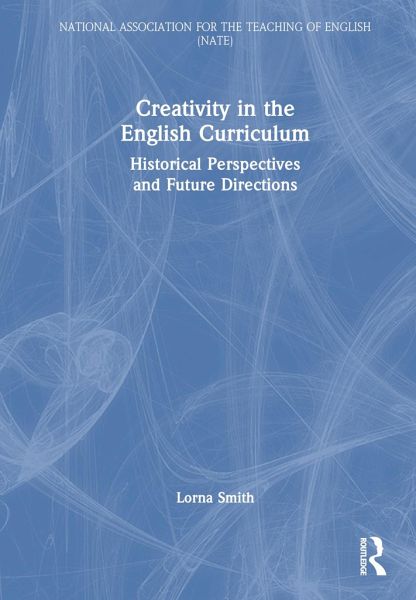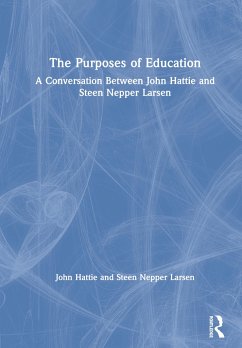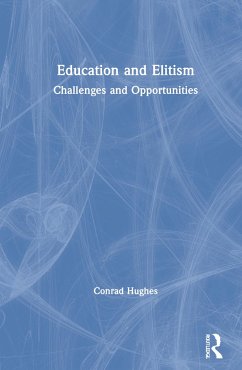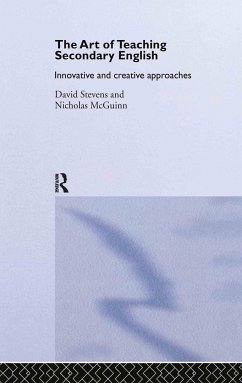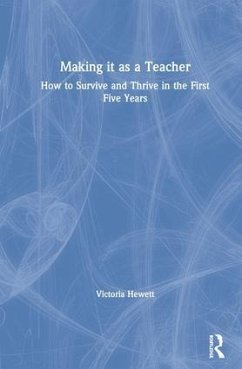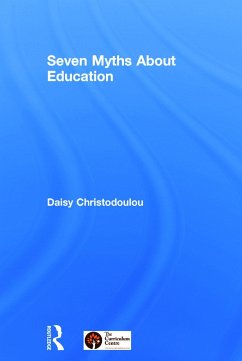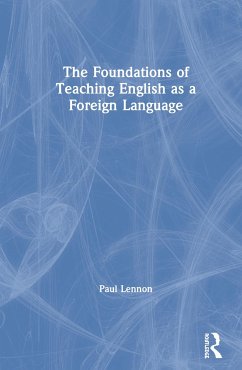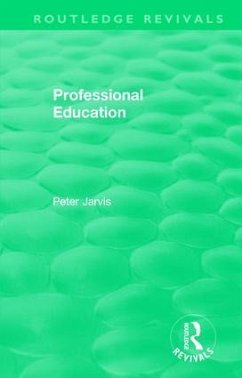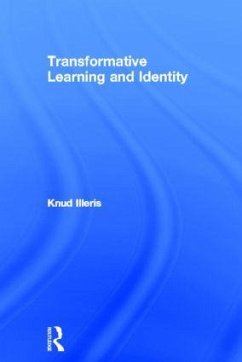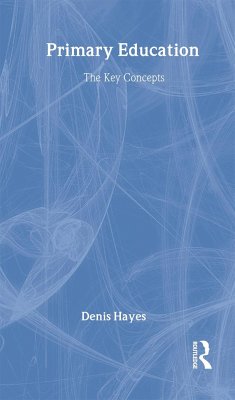Lorna Smith
Gebundenes Buch
Creativity in the English Curriculum
Historical Perspectives and Future Directions
Versandkostenfrei!
Versandfertig in 1-2 Wochen
Weitere Ausgaben:

PAYBACK Punkte
75 °P sammeln!





Creativity in the English Curriculum is essential reading for anyone involved or interested in the teaching of English, offering both a detailed history of how creativity has informed the tradition of teaching English, and how it should be used to position this teaching in the future.
Dr Lorna Smith leads the PGCE English course at the University of Bristol and is Chair of the NATE Initial Teacher Education working group. She was awarded the NATE Terry Furlong Award in 2020 for the research that underpins this book.
Produktdetails
- Verlag: Routledge
- Seitenzahl: 178
- Erscheinungstermin: 21. April 2023
- Englisch
- Abmessung: 250mm x 175mm x 14mm
- Gewicht: 497g
- ISBN-13: 9781032152585
- ISBN-10: 1032152583
- Artikelnr.: 67261182
Herstellerkennzeichnung
Libri GmbH
Europaallee 1
36244 Bad Hersfeld
gpsr@libri.de
'This is a really excellent book - a fascinating examination not only of current debates about notions of creativity in education and most specifically in subject English, but also of the whole history of the idea of creativity. Smith is erudite and thorough in the story she tells, bringing to light the relevance of past thinking, reporting and policy-making to present trends and attitudes. This is a key book for anyone researching English teaching but also essential reading for teachers wanting to understand more about creativity and learning and the rationale for bringing it into being in their own classrooms. Most importantly, its superb tracing of ideas historically provides a much-needed context for thinking about the idea of
Mehr anzeigen
creativity today. And the thinking of today is brilliantly brought to life in the transcribed conversations in the 'playscript' of the third part of the book - absolute golddust in showing in action the ways in which teachers are grappling with the challenges and constraints they face in trying to enact own conceptualisation of the subject and learning within it.'
Barbara Bleiman, English consultant at English and Media Centre (EMC), author of 'What Matters in English Teaching' (EMC)
'This book presents a timely, compelling and important argument for the restoration of creativity to the curriculum for English. The history of English as a subject is deftly distilled, and followed by a thought-provoking series of research-informed scripts which present a range of opinions and perspectives on 'creative English'. This will be of interest across the English teaching community: an excellent resource to prompt discussion, reflection and creative practice.'
Dr Annabel Watson, Senior Lecturer, University of Exeter; editor of 'A Practical Guide to Teaching English in the Secondary School' (Routledge)
'Dr Lorna Smith's book has many major strengths and distinctive features. It covers vital areas connected with creativity and the history of English teaching. Her creative coverage of these topics is much needed at the moment, not just as an academic resource, but to generate wider public debate about creativity and English teaching. It is innovative in the way it uses scripted dialogue to promote wider and imaginative thinking about English teaching, creative pedagogy and English teaching's place in the wider culture. It is also a great summation of the current research/thinking in the field of creativity.'
Dr Francis Gilbert, Senior Lecturer in Education, Head of the MA in Creative Writing and Education & course leader for PGCE English at Goldsmiths University; author and novelist
Barbara Bleiman, English consultant at English and Media Centre (EMC), author of 'What Matters in English Teaching' (EMC)
'This book presents a timely, compelling and important argument for the restoration of creativity to the curriculum for English. The history of English as a subject is deftly distilled, and followed by a thought-provoking series of research-informed scripts which present a range of opinions and perspectives on 'creative English'. This will be of interest across the English teaching community: an excellent resource to prompt discussion, reflection and creative practice.'
Dr Annabel Watson, Senior Lecturer, University of Exeter; editor of 'A Practical Guide to Teaching English in the Secondary School' (Routledge)
'Dr Lorna Smith's book has many major strengths and distinctive features. It covers vital areas connected with creativity and the history of English teaching. Her creative coverage of these topics is much needed at the moment, not just as an academic resource, but to generate wider public debate about creativity and English teaching. It is innovative in the way it uses scripted dialogue to promote wider and imaginative thinking about English teaching, creative pedagogy and English teaching's place in the wider culture. It is also a great summation of the current research/thinking in the field of creativity.'
Dr Francis Gilbert, Senior Lecturer in Education, Head of the MA in Creative Writing and Education & course leader for PGCE English at Goldsmiths University; author and novelist
Schließen
Für dieses Produkt wurde noch keine Bewertung abgegeben. Wir würden uns sehr freuen, wenn du die erste Bewertung schreibst!
Eine Bewertung schreiben
Eine Bewertung schreiben
Andere Kunden interessierten sich für




